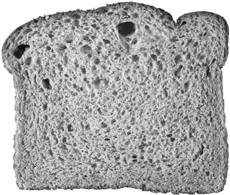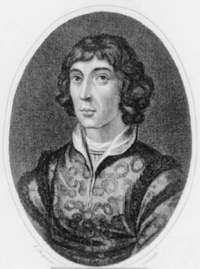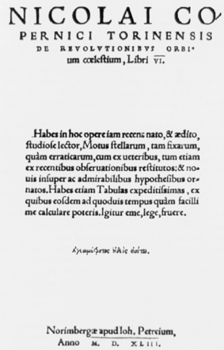A famous scientist, a tasty spread, and a wartime outbreak of disease.

To Polish astronomer Nicolas Copernicus we owe our understanding that the earth moves around the sun, not the sun around the earth. It was a discovery that revolutionized science. Do we also owe to him the custom of putting butter on our bread?
In 1519, Copernicus was called upon to command Polish forces besieged in the fortified town of Allenstein, a Polish town on the Prussian border.
During the siege, the town was struck by plague. Copernicus isolated the town’s bread as being the source of the disease. But he suspected that it wasn’t the bread itself, rather the fact that something was contaminating it.
Sanitary conditions in the beleaguered town were marginal at best, and the coarse black loaves could be dropped in the dirty streets, or otherwise contaminated, without even showing it.
That’s when a fellow by the name of Gerhard Glickselig suggested to Copernicus that the bread loaves be covered with a thin layer of light-colored spread. That would make it obvious if the bread was dropped or if debris fell on it, and people could avoid eating it. Copernicus ordered it be done, and the plague soon ended.
Thus were married bread and butter, at least for the first time that we know of. It didn’t become common in Europe until the following century. And so we honor Copernicus as a man ahead of his time in matters of cuisine as well as the cosmos.

True to form, Copernicus employed the scientific method to discover the source of the disease. He divided the town’s residents into four groups and fed them different things. The group that got no bread was the only one that remained plague free.
Allenstein was being besieged by the Teutonic Knights, a religious order of German knights formed in Jerusalem during the Crusades. Later they conquered Prussia, and battled with Polish kings for centuries.

Copernicus’s revolutionary theory about the earth revolving around the sun was published on his deathbed, sparing him conflict with the Vatican, which would plague Galileo and others who followed in his footsteps.